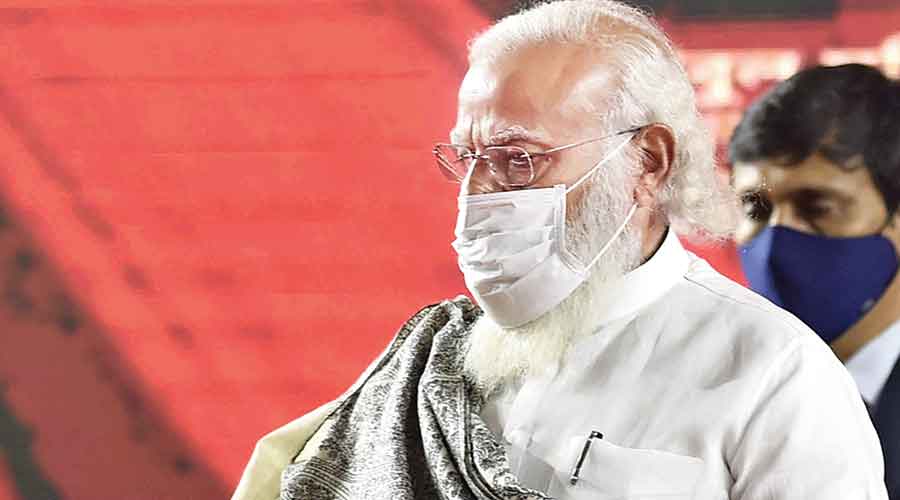Indians are an argumentative lot. An argument need not be a squabble. In a democracy, it may well be synonymous with animated, public deliberation. It is thus strange that the argumentative Indian has chosen to elect a dispensation that is markedly disinterested in engagements — heated or not. The Narendra Modi government’s love for the furtive has, in the course of the last few years, had numerous manifestations. The prime minister refuses to pay heed to the persistent demands by the Opposition to come clean on the allegations of snooping by the regime with the help of sophisticated technology. Neither has he responded to the allegations of China encroaching upon Indian territory in spite of grim developments on the border. The ‘gains’ of radical interventions — demonetization is an example — have remained mysterious, as mysterious as the Centre’s assurance of the Indian economy being in robust health in a world ravaged by the pandemic. The evidence of Mr Modi’s evasive self is thus substantial. Yet, he has managed to get away with it because key institutions — they include the media — have not done enough to demand accountability from this government.
So the Central Information Commission’s directive to the Centre to reveal within a stipulated time frame the details of its preparations for and management of the Covid-19 disaster, especially the oxygen crisis, must be welcomed. Responding to a plea to make such information public, the CIC also dismissed the government’s argument that such revelations could impair national interest. And herein lies the crux of a dilemma common to democracies. Elected — seemingly authoritarian — governments are increasingly willing to exploit the rhetoric of national interest or security to deny access to information pertaining to public, indeed national, welfare. The constriction cannot go uncontested. This is because the foundations of democracy are rooted in the pledge of welcoming and strengthening the culture of transparency. The latter’s absence can tempt democratically-elected governments to prey on democracy itself. The responsibility of keeping governments accountable to the people is not the Opposition’s alone. It must be shared with institutions that like to imagine themselves as the sentinels of democracy. The CIC’s rap on the knuckles of the Centre should be seen as a reminder to these slumbering agencies that they, too, have a responsibility to keep the government on its toes.











